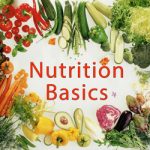Base Module Basic Concepts of Nutrition
Before we can understand any weight loss or dietary program we must have an understanding of what nutrition is. This module provides the basics of nutrition discussing the macro nutrients – proteins, fats and carbohydrates, the micro nutrients – water and minerals, as well as the digestive process.
Overview
Nourishing our bodies is no small task. In fact, it takes over 40 nutrients to keep our bodies going. Many are essential, meaning we have to get them from our food supply in order to survive.
- Carbohydrates are the body’s major source of energy, or calories. Scientific evidence suggests that at least 40% of our daily calories should come from carbohydrates.
- Fats transport nutrients, plus they’re part of the structure in many body cells. Fats also contribute calories – lots of them. Experts say we should limit our intake of fat to less than 30% of our calories.
- Proteins are made up of amino acids that the body uses to build, repair, and maintain tissues. Proteins also contribute calories to the diet. At least 30% of our daily calories should come from protein.
- Vitamins don’t provide calories, yet they’re extremely important, helping with all kinds of chemical reactions in the body.
- Minerals are similar to vitamins; they don’t provide calories, and they play very specific roles in our body’s metabolism.
- Water is often called “the forgotten nutrient” because people don’t think of it as an essential part of the diet. But consider this: our bodies can survive for up to six week without food, but we can’t make it past seven days or so without water.
Later in the module, we’ll cover energy, energy balance, and weight management in more detail. But first we’ll take a closer look at the six categories of nutrients, including their functions and food sources, plus we’ll address how you can help clients make healthier food choices.